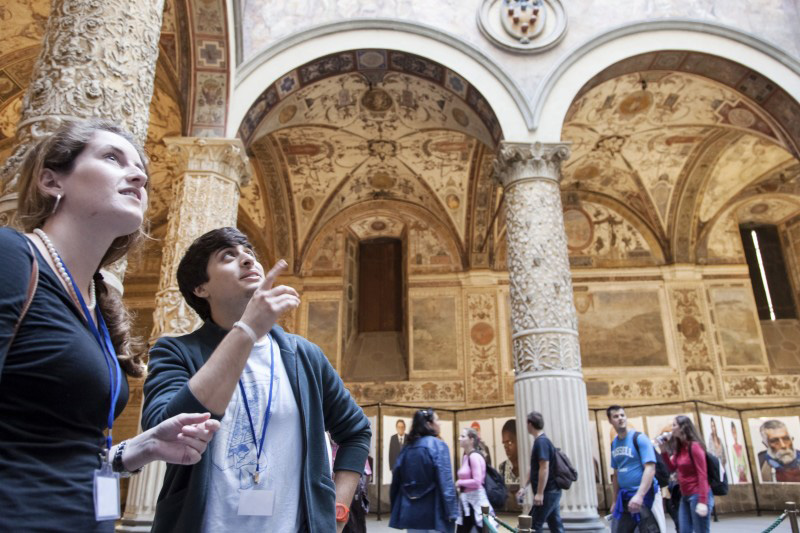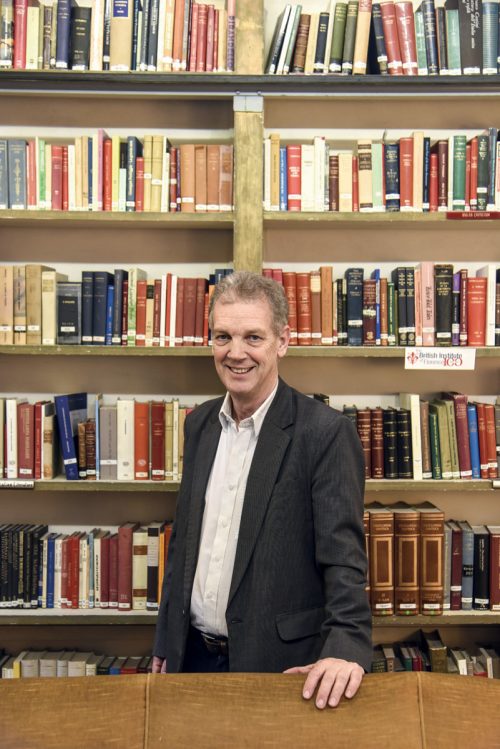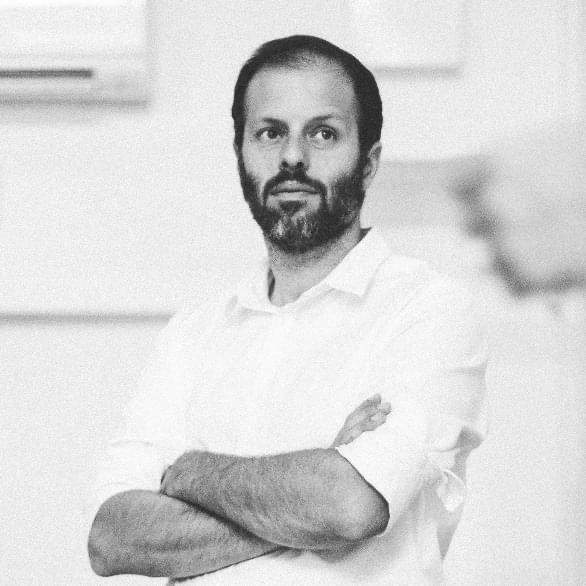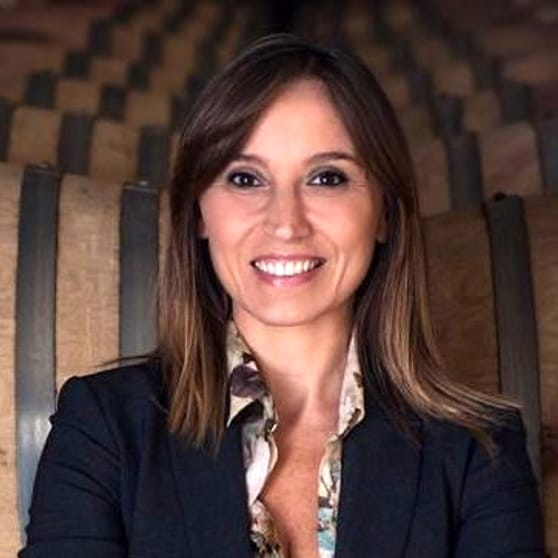We pick the minds of local education experts with considered contributions from Simon Gammell, Director of The British Institute; Carla Guarducci, President & CEO, Lorenzo De’ Medici – The Italian International Institute; Alessandro Colombo, Director of AD Education Italia/Accademia Italiana, and Ylenja Lucaselli, Italian MP.

Photo by Paolo Lafratta, ISI Florence
They’re back! Not in the same numbers as before the pandemic, but along the streets of my Oltrarno neighbourhood, you again encounter groups of young Americans, filling the space with their bubbling enthusiasm. They’re here for the time of their life, on one of the 45 US study abroad programmes. It’s great that they’re returning.
Before the pandemic, there was a bit of negative stereotyping round the 10-15K American students that come each year: too much rowdy partying messing up the streets and creating a hullabaloo. But the determined efforts of the local youth to turn piazza Santo Spirito into a permanent rave over the past year (when there have been no American students in town) have rather undermined that caricature. Instead the city is now determined to welcome international students as temporary residents who make a significant contribution, partly because they stay for longer periods than regular tourists: 30K international students spend about 2.4 M nights a year in Florence. This rethink is getting practical support from the Destination Florence Convention and Visitors Bureau, with a new programme called Be.Long (clever pun, no?).
Florence is a major international centre for higher education. Alongside the US university programmes, there are prestigious colleges such as the European University Institute and Polimoda, plus the University of Florence of course, which also attracts 4,000 international students each year, together with numerous other academies, art schools and research centres. There is much to be done to realise the full potential of the sector, a key element in Florence’s burgeoning knowledge economy and start-up scene, including fostering better collaboration between the various colleges and programmes, building stronger links between research and industry, and simplifying the bureaucracy.
But, for now, we can celebrate the return of the international students and make them most welcome.

Simon Gammell
Director, The British Institute of Florence
Studying is a privilege; that’s something we should never forget. And studying in Florence is priceless, for myriad reasons that will never change.
The world of education has suffered and students all over the world have been forced to change their way of learning, in front of a computer, at home, without the empathy and connection that only time with a teacher can provide.
Education won’t be the same as before and all of us who work in this world must not underestimate this aspect. Many opportunities have risen from the ashes of a now redundant model that is no longer in sync with the times. By this, I don’t mean that in-person learning isn’t fundamental, but that the class format whereby the teacher explains and students listen is no longer interesting; it’s too removed from the world of work and interaction among people.
In these two years, the concept of school has turned into something different. The physical place has gone missing and only the act of educating remains. This gives us new stimuli; the school is not the place, but the way in which we learn. With the same logic, we could argue that an entire city could be a “school” and a place like Florence could offer even more potential than it already has.
Imagine classes in a park (think Boboli!), at a coffee shop overlooking piazza della Signoria, as well as an artisan workshop, a theatre, or sitting in front of the Arno as the river flows past. If we want to dream about a more “scattered” school, this is the time to achieve it, and perhaps we could go one step further and think of our classmates as travellers, even many of the tourists who pass through. They are people after all and among them we might find experts in a range of subjects. One thing might lead to another and soon we will have knowledge exchange that would enrich us all.
If the question is, where do I envisage the future of education once the pandemic is over, there’s one answer: Florence.

Alessandro Colombo
Director, AD Education Italia/Accademia Italiana
The enthusiasm and energy of the students arriving in Florence are the greatest recognition of everything we have done to ensure their safety and respect of the legal requirements.
It’s more than enthusiasm; it shows determination and awareness. Our Mexican students were obliged to spend ten days in quarantine and they did it without complaint, happy to be here and eager to start their studies.
The difficulties of travelling—vaccines, green pass, quarantine—have honed their awareness. Our students know exactly what they want, even in their choice of courses, and place value on their experience; they have never been more motivated and only see the goal instead of the obstacles in their way.
The situation has forced us to work with greater creativity and cognizance in terms of finding solutions: small groups, new classroom and workshop layouts, new cleaning procedures, orientation and lessons in person and online. We try to listen to our students as much as possible, striving to understand their needs and doubts through constant and mindful dialogue. For my staff, this has been a time of struggle of course, but also of growth and confirmation of the passion we put into our work.
We now have more than 300 students, which is less than 50 percent compared to pre-pandemic levels, but it’s an increase on last year’s numbers. What’s positive is that we’re seeing plenty of excitement about next spring with even more countries showing interest than in the past, bringing a wealth of culture for our school.
Our students’ perseverance and drive to be in Florence fill us with a responsibility and energy that enable us to overcome all difficulties and view the future with confidence.

Carla Guarducci
President & CEO, Lorenzo De’ Medici – The Italian International Institute
Now more than ever, the internationalization of the learning offer of Italy’s universities, especially in relation to attracting international students is key to Italy following the global trends in education.
To achieve this, it is essential to give this internationalization a meaning that overtly surpasses the European context.
For a while, the international openness of our universities saw the continent and EU dimension certainly prevail. Then this shifted to the extraordinary success of the europeanization of higher education in the EU, which doesn’t appear to be a problem now, to the detriment of introducing integration processes to be taken as a model to urge and lead similar processes at a regional and global level.
This awareness of the global dimension posed by the matter of higher education is what we must tend to today. Growing demand is apparent in imposing migratory dynamics, which is a challenge for national universities, while also offering them new opportunities that are not restricted to the European context.
Challenges and opportunities are often viewed in terms of competition. The words have become a type of mantra, which seems destined to structure the entire conversation about internationalization. In actual fact, improved higher education at a global level is above all the answer to the needs of the planet.
As we will see, the internazionalization of a single university or university system can bring advantages to that university or system. Nevertheless there is no contradiction between pursuing them and working for global development and its sustainability. Moreover, the mission of universities has always been transnational.
In terms of competition, it would seem more appropriate to use the notion of coopetition, coined in the early twentieth century to indicate situations in which reasons to compete and cooperate go hand in hand. This is the situation where we find ourselves on a global level.
Because of this we can do no other than consider that the plus offered by internationalized education comes from the possibility of integrating and amalgamating various modes of teaching and educational cultures. From this standpoint, welcoming students to our universities and creating bonds with foreign universities to facilitate access for our young people overseas is the true key to all-round education and immersion in an educational experience that includes culture and the local area.

Ylenja Lucaselli
Italian MP







